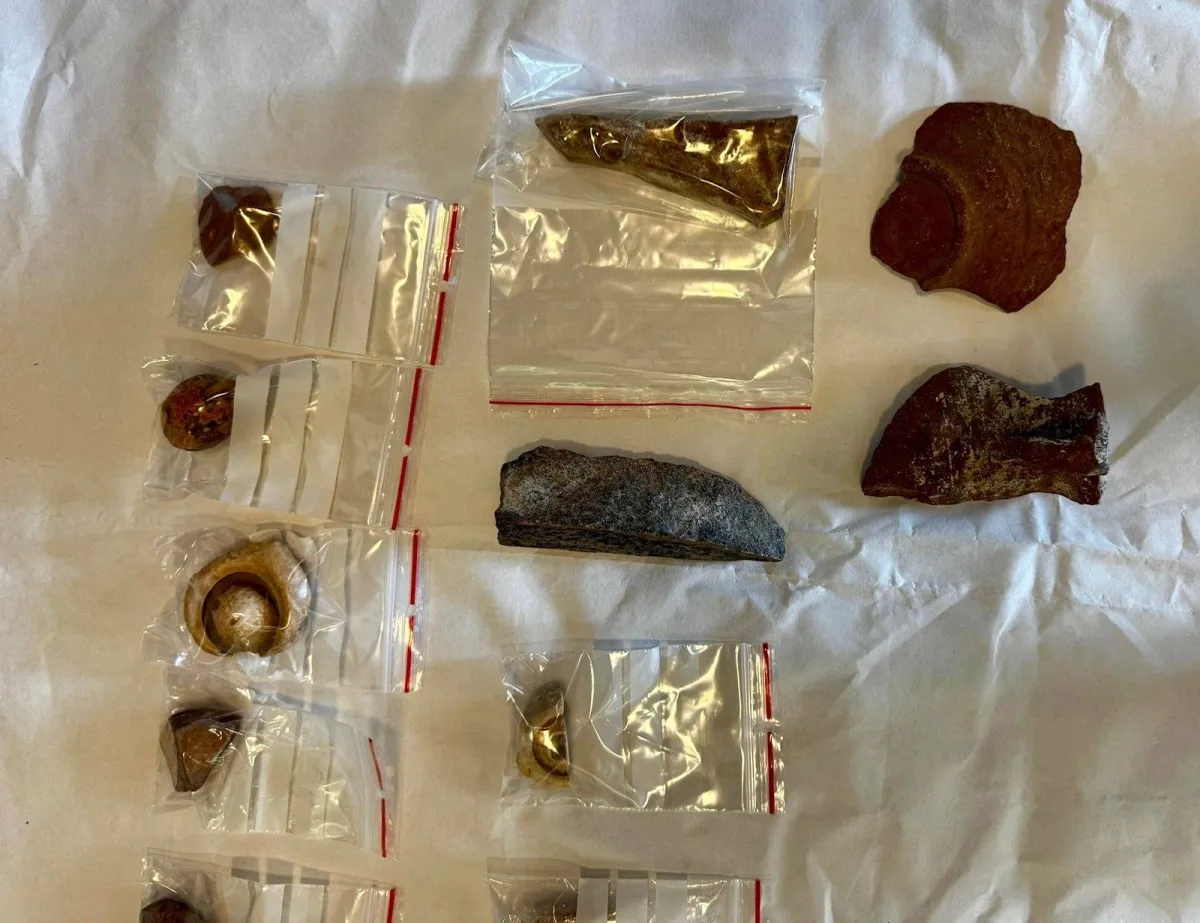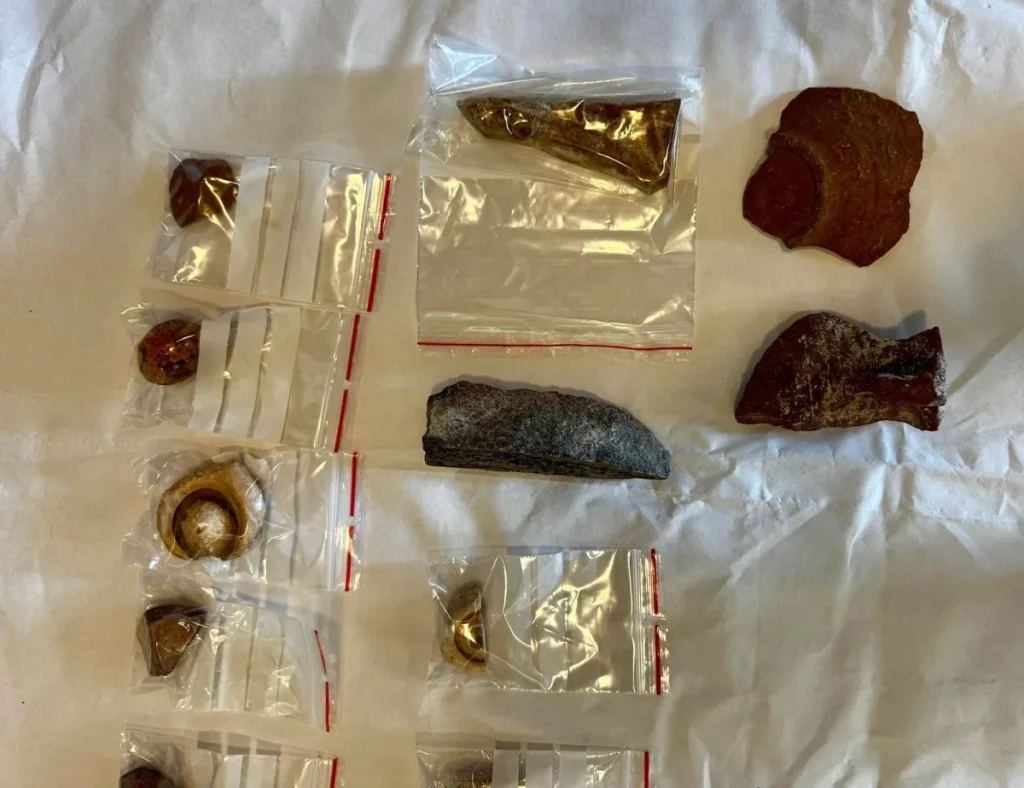Egypt’s embassy in The Hague, Netherlands, received a collection of rare antiquities from the Dutch National Museum, dating back to ancient times, after it was confirmed they left Egypt through “illegal” means. Egyptian Minister of Tourism and Antiquities Sherif Fathy described the recovery as a step confirming the shared commitment to protecting human and civilizational heritage and supporting efforts to preserve and protect antiquities. The recovery is part of fruitful cooperation between Egypt, represented by the Ministries of Tourism and Antiquities, Foreign Affairs, and Migration and Egyptian Expatriates Affairs, and several countries worldwide to combat the illicit trafficking of cultural properties. Egypt’s ambassador in The Hague, Emad Hanna, stated that this recovery is part of the state’s diligent efforts to retrieve smuggled Egyptian antiquities governed by the Antiquities Protection Law No. 117 of 1983 and its amendments, preserving them for future generations.
The recovered collection consists of various pottery pieces, including star-decorated and spherical items, as well as a piece resembling a knife, reflecting the diversity of arts and innovations in ancient Egypt. Egypt seeks to recover its smuggled antiquities through bilateral cooperation agreements with countries such as the US, Switzerland, Italy, and Spain, or through negotiations with holders of antiquities. Since 2014, Egypt has recovered over 30,000 antiquities. Egyptian archaeologist Dr. Hussein Abdel-Basir emphasized the national importance of recovering smuggled Egyptian antiquities, linking it to Egypt’s identity, history, and legitimate right to protect its unique human heritage. He added that bilateral cooperation reflects growing global awareness of combating illicit trafficking in cultural properties and recognition that human heritage cannot be subjected to market logic. Recently, Egypt announced the recovery of 13 antiquities from Germany and Britain that had left the country illegally.
Abdel-Basir noted that repeated announcements of recoveries from various countries send a strong message that Egypt is steadily reclaiming its historical rights, reflecting the vast amount of looted artifacts over decades, while reassuring that the state vigilantly monitors its antiquities abroad and will not relent in claiming them. Although there are no bilateral cooperation agreements with the Netherlands specifically for antiquities recovery, Dutch authorities cooperate with Egypt in this field. In August 2024, Egypt recovered three Late Period antiquities from the Netherlands, including a blue faience “ushabti” statue of a person named “Abitahmes” from the New Kingdom era between the 26th and 30th Dynasties (664 – 332 BC), parts of a wooden coffin with inscriptions depicting the goddess Isis likely from the 26th or 27th Dynasty (663 – 504 BC), and an unknown mummy head believed to be from the Hellenistic period between 170 and 45 BC.














Recommended for you
Talib Al-Rifai Chronicles Kuwaiti Art Heritage in "Doukhi.. Tasaseem Al-Saba"
Exhibition City Completes About 80% of Preparations for the Damascus International Fair Launch
Unified Admission Applications Start Tuesday with 640 Students to be Accepted in Medicine
Egypt Post: We Have Over 10 Million Customers in Savings Accounts and Offer Daily, Monthly, and Annual Returns
His Highness Sheikh Isa bin Salman bin Hamad Al Khalifa Receives the United States Ambassador to the Kingdom of Bahrain
Al-Jaghbeer: The Industrial Sector Leads Economic Growth